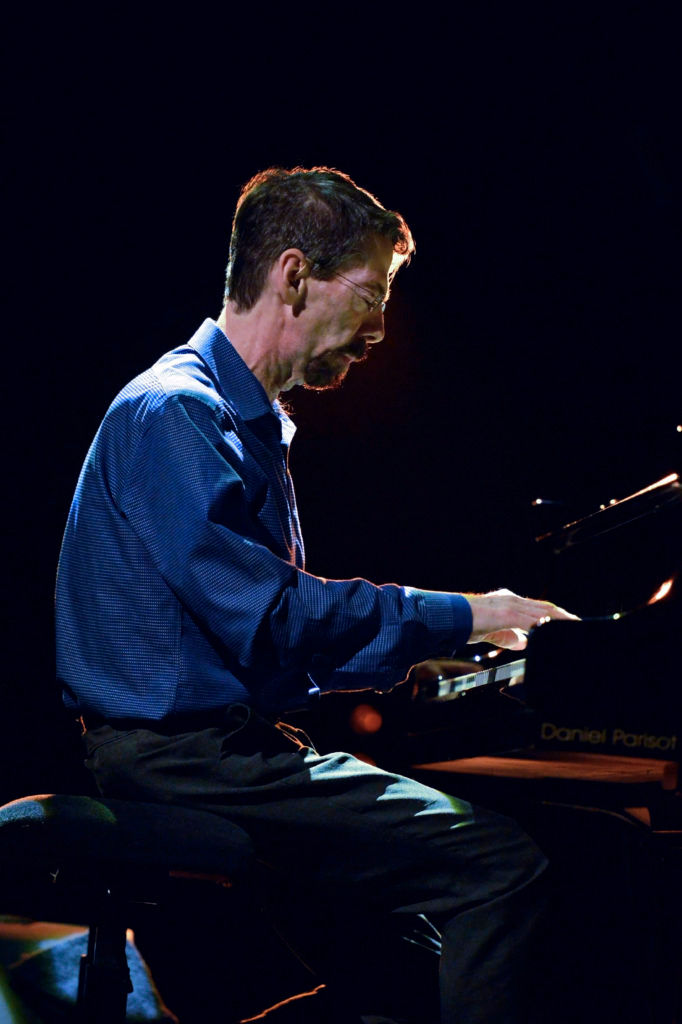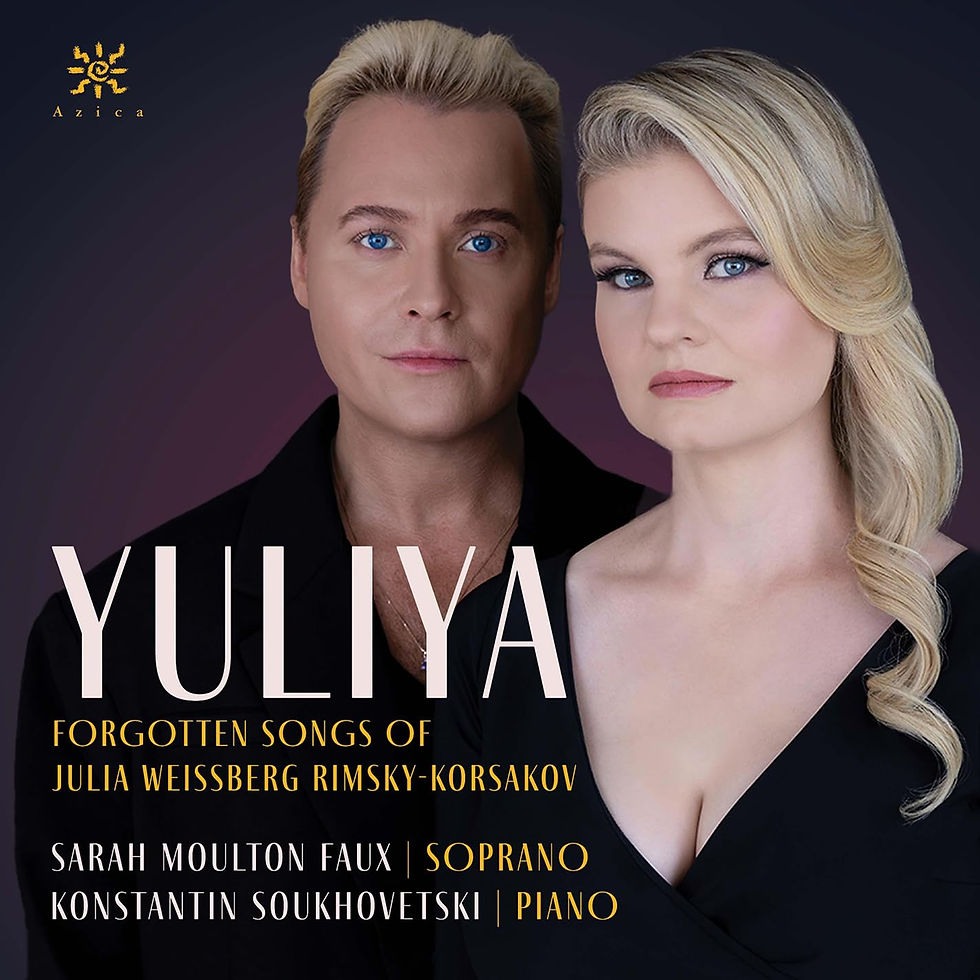Pianist Fred Hersch
- Jan 15, 2012
- 4 min read
Updated: Jun 17, 2020

I first heard about Fred Hersch -- who, now in his mid-fifties, has played gigs in about every major New York Jazz venue -- in a very different way. In The Insanity Hoax, author Judith Schlesinger makes her convincing point that the surplus in creativity, inherent in a great musician’s/ great artist’s life, does not necessarily make for mad geniuses and that, if anything, our great geniuses ought to be celebrated, not diagnosed. Hersch, a survivor of a recent Aids- related loss of conscience and a miraculous, full recovery into previous pianistic greatness, confirmed:”Putting labels on anything is dangerous. Everybody is diagnosed these days with something…disorder of this, disorder of that…and treated with medication. And what is normal? Within the creative process of anybody, there is something akin to some sort of mania, an energy trying to capture something before it gets away. Inevitably, there is a crash following afterwards. You have to live with what you have accomplished and recuperate yourself. Maybe there are only a few days in between these creative bouts, but every true artist needs to recover from such an intense creative input. And after all, even if you want to call it creative madness, I see it as ten percent inspiration and ninety percent perspiration.”
Moving to New York in the late 1970s, Hersch, who was classically trained at the New England Conservatory of Music, learned to play jazz firsthand from playing with greats such as Stan Getz, Joe Henderson, Lee Konitz, Art Farmer and Charlie Haden. “Hersch’s music best connects to the jazz tradition of Thelonious Monk, Charles Mingus, Ornette Coleman. It’s luxurious, free-flowing, unashamedly gorgeous jazz – idiosyncratically, unmistakably a creation of his own, “ David Hajdu explains in his New York Times portrait of Hersh. (January 28th, 2010) Hersch has held several teaching positions himself at various music institutions like the Manhattan School of Music, the New School University and Western Michigan University but recently returned to his teaching position at the New England Conservatory, one of his favorites for its special atmosphere and appreciation of the musicians. He has left his mark on a young generation of talented pianists, including Brad Mehldau and Ethan Iverson. ”In the twentieth century everything got so divided. Now, slowly it merges together again. I do like to play Brahms, Beethoven and Scarlatti Sonatas. I have a program with improvisations that also includes, on occasion, the Mozart No. 27 concerto, next to different arrangements of the program. As pianists we have this amazing literature at hand…” says Hersch. Some of his compositions are published by Peters Edition. “I love the piano and what it can do, beyond what is

Photo: John Abbott
standard for jazz pianists,” he says. “A good performance is when it really tells a story. There is a formidable skill set necessary to be a jazz musician. You have to be able to transpose, improvise, you have to understand chord symbols, different styles and be able to accompany. Most important is the rhythm. Timing can be developed to a certain point, but you have to feel it in your guts – that can only be taught to a certain degree. When I perform, I go to the venue beforehand, maybe for 45 minutes or so, make myself comfortable with the piano and then I plan the first tune. In performance I close my eyes and take it from there. I am in my own world then. But I can feel if the audience is with me. If I discover something new, the audience feels it and gets excited as well. I always assume they are sophisticated until I am proved different.”
His teacher, Sophie Rosoff at the New England Conservatory, was an assistant to Abby Whiteside, who had challenged the finger- centric approach of piano technique and instead advocated a holistic attitude, where the whole(upper) body acted in natural conjunction with and in support of the (so called weak) fingers, making it unnecessary to train finger ”strength” with useless exercises. Whiteside also believed in an intrinsic feeling of rhythm, an innate sense of phrasing that she observed in the natural ability of a child prodigy and jazz pianist. (from: Wikipedia) To get an introduction into jazz, Hersch recommends: “Pick any song, improvise on it and see where it leads you. Listen to jazz; it’s a language you can’t just put on like a hat.” I personally can recommend his Alone at the Vanguard, a Palmetto production from 2011, which documents his second run of a week-long engagement as solo-artist of the famous New York Village Vanguard.

Photo: Mark Niskanen
The CD is nominated for two Grammy Awards: for Best jazz Instrumental Album and for Best Jazz Improvised solo (for his interpretation of Monk’s work) The large scale production of “My Coma Dreams,” a work for 11 instruments, actor/singer and animation/multimedia was directly inspired by his real life event. The project, which Hersch describes as his “most personal and probably most ambitious one,” was realized in 2011. Hersch is a dedicated member of the gay community and it has been always an important agenda for him to support fund raising benefits, like the AIDS charity Classical Action supported by IMG co-founder Charles Hamlen. As we near the end of our conversation he suddenly acknowledges energetically:”Now I am looking for the next big thing! The last one (he refers to the Coma Project) involved theater. I recently had an idea for a musical, but it did not come through yet. I like text and would love an opportunity to incorporate text and music.”

Photo: John Abbott
In the meantime, pianist Natasha Paremski, who in September 2010 was awarded the Classical Recording Foundation’s Young Artist of the Year, will perform his Improvisation on a theme by Tchaikovsky, a commission by the Gilmore Foundation she was able to choose as the winner of the prestigious Gilmore Prize. She will perform it at the 2012 Gilmore Festival. Fred Hersch will perform at the Village Vanguard on February 7-12th with his “working band,” Fred Hersch Trio that includes John Hébert on bass and drummer Eric McPherson.
He will also perform as soloist at the Jazz Standard on March 18th Fred Hersch's website: http://www.fredhersch.com/
Fred Hersch’s website: http://www.fredhersch.com/



Comments